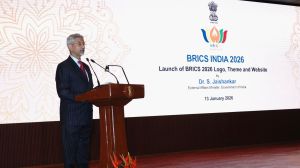In the sunlight
RTI cannot be judged by those it is meant to take on

The Right to Information RTI Act, enacted after decades of civil society pressure, is one of the biggest achievements of this government. In its brief life so far, it has unearthed some scandals, delivered some answers, embarrassed some officials and held out the promise of some shift in power relations between the government and the governed.
Now, the Department of Personnel and Training wants to audit RTI achievements, and has roped in PricewaterhouseCoopers to prepare a report card. RTI activists point out that this situation is rife with irony 8212; that the legislation that is meant to wrest accountability from government officials should be judged by an agency handpicked by the officials themselves. And so, RTI campaigners have decided to do their own calculations and assess the act with support from a variety of research institutions. The underlying question is not about 8220;foreign funds8221; or foreign agencies like PwC. In fact, the activists8217; study is being bankrolled in part by the Google Foundation. Google is openly committed to transparency although its own dossier on individuals could do with some exposure, and there is no doubt that a citizen survey backed by solid research is infinitely more meaningful than the government8217;s exercise. RTI activists worry, rightly, that the PwC study could be used to undermine the achievements of the movement, and hobble its hard-won freedoms.
The crucial point is that the government and the people naturally come at RTI from different directions; this adversarial dynamic is built into the very nature of the legislation. While the government would view RTI through the lens of disruption and inconvenience 8212; the extent to which 8220;frivolous petitions8221; hold up official functioning or impose excessive curbs on the bureaucracy 8212; the citizens8217; perspective would be diametrically different, premised on the belief that a truly participatory democracy rests on public access to information, and these logistical gripes whether motivated or not should not be allowed to detract from the greater good of maximum transparency. So both the government and the activists should formulate their own assessments, and we, the people, must be especially vigilant against any possible rollback of the little liberations that RTI has enabled.
- 01
- 02
- 03
- 04
- 05































